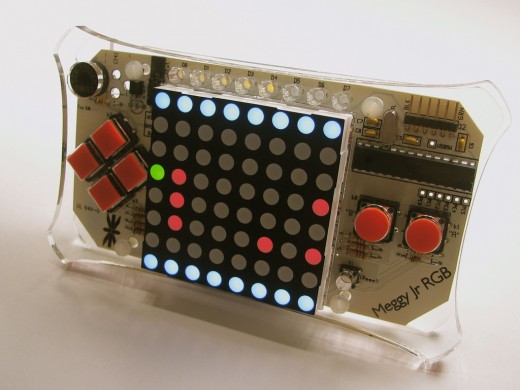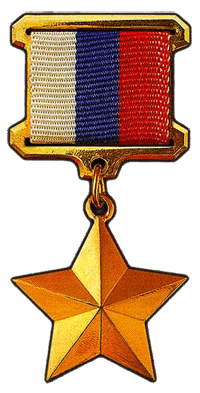Funware: Definition, Background, and Examples
Funware is any device, program, challenge, or network that turns an everyday activity into a game. Funware is part of the gamificaiton movement, a trend involving the application of gaming mechanics to all aspects of life.
Though the coinage is relatively new (the word has been gaining attention since 2011), most have enjoyed funware in some way or another in the past two decades. Some of the most common forms of funware are seen in various rewards programs. Other forms of funware are a part of the quantified self movement, which involves the logging, tracking (and in this case, social and semi-competitive sharing) of personal data. Some of the newest forms of funware have been manifesting themselves in the form of serious and social games- games which either encourage real-world, productivity activity and/or involve the use of a social network.

Early articles on funware
Coinage
The term funware was coined by gamification expert, public speaker, entrepreneur, and author Gabe Zichermann.
Zichermann's term first saw major media coverage in February 2008 when he discussed game-centric design at the World In Motion Summit at GDC. He used the term to describe how his start-up rmbr, a photo-based application.
In his talk, Zichermann introduced the concept of funware as something using "gaming design in non-gaming contexts." He also discussed various instances in which funware can also be found in action, pointing out "incidental funware" on eBay, Facebook, and Yahoo answers.

What are the common elements of funware?
Though funware is a new, open, flexible, and constantly evolving term at the moment, programs and games described as funware often utilize the following elements:
- Points
- Badges
- Levels
- Real-world rewards
- Social capital
- Leaderboards
- Challenges or tournaments
- Plots or mysteries to be uncovered
Points, badges, levels, rewards, and social capital keep players motivated, while leaderboards enable players to track these incentivizing elements.
Funware developed on or with social platform utilizes challenges or tournaments to get users to engage with one another, either to compete or collaborate.
Funware in the form of alternate reality games often utilizes a compelling plot or mystery to drive users to find out more.
Incidental Funware
Incedental funware is a term Gabe Zichermann introduced to describe anything that is incidentally gamified- something that may have not intentionally been designed with gaming mechanics in mind, but nonetheless can, and often is, played like a game.
An obvious example of incidental funware is Twitter, where many users attempt to get as many followers as possible. Followers are a great example of social capital being used as a motivator- and in this case, social capital is almost like a points system as well, as followers are inherently quantifiable.
Another example of incidental funware is Facebook. Similar to those on Twitter, users on Facebook may seek to get as many friends as possible. Users may also seek to garner a large number of likes for links they share, or seek to get a high number of comments. In these latter cases, it is slightly harder to quantify social capital, however Facebook notifications act as an excellent leaderboard on Facebook. One could become easily addicted to seeing little red icons indicating the interest and attention of others.
Many business may develop a product or service that contains incidental funware and notice its value after the fact. In this case, the business may take actions to develop that funware, adding more intentional game mechanics to augment its positive effects. This may have been the case with regard to Facebook's choice to make notifications so prevalent.

Commercial Funware
Rewards programs are the most common forms of commercial funware. These programs typically offer points, such as Starwood Points, Citi ThankYou Points, or United Miles in exchange for every dollar spent or mile traveled, that can be eventually redeemed for freebies, discounts, and prizes.
Commercial funware can be so much more sophisticated today, thanks to social networks, smartphones, and improved tracking technology. Some commercial funware is rolling out in the form of free game downloads; other gamified marketing campaigns are rolled out as alternate reality games (ARGs) and immersive transmedia experiences. Still more gamified campaigns are piggybacking on social networks and mobile apps, using platforms such as Facebook, Foursquare, and Twitter to engage with potential customers in new and interesting ways.
Commercial funware is not always oriented toward acquiring customers or encouraging repeat purchases. In many cases, companies develop funware to encourage better overall engagement with customers and users. For example, the Huffington Post has developed an interesting badge system for users on its site- HuffPo commentors are now touting badges such as "Level 2 Networker" and "Level 1 Superuser." These badges encourage readers to spend more time on the site and contribute in more valuable ways.
In the months and years to come, consumers may expect to see many new gamified loyalty, marketing, and engagement campaigns that are more entertaining, fun, and interesting than any straight coupon, commercial, or user interface upgrade could ever be.
Alternate Reality Games as Funware
Though alternate reality games (ARGs) are a stand alone genre, they are certainly noteworthy forms of funware that deserve mention in this overview.
The term "ARG" existed long before the term "funware" and long before people were getting excited about gamification, companies and creative individuals alike were using ARGs to make anything from marketing campaigns to everyday life more interesting.
ARGs have been used commercially to advertise cars, movies, and even the Olympics. ARGs have been used for educational purposes as well, challenging people to consider a world in which humans run out of oil, or have a predicted date of extinction. ARGs have also been developed for the purpose of pure entertainment.
The most important thing to understand about ARGs as funware is that they gamify life by creating an alternate reality- often in the form of a mystery or narrative- that players uncover, bit by bit. They usually roll out over several months, span across several forms of media, require collaboration, and are periodically punctuated with real-world activities or events.
Serious Games as Funware
Though Gabe Zichermann made a point of separating funware from the serious games movement back in 2008, saying that if a game's first goal is educational, it is not funware, serious games are, by the term's very definition, funware.
The major argument for dissosiating serious games from funware stems from the assertion that serious games end up being boring games. This, of course, makes no sense whatsoever. It is not serious games, as a form, that bore palyers; it is poorly designed games that contribute to a game's lack of audience engagement.
Any serious game that successfully applies gaming mechanics to a serious process, be that education or preparing for the impending demise of mankind, is funware. Should you disagree, feel free to present your counter argument in the comments below.

Funware and the Quantified Self
Many people have made a game of using devices, apps, and programs to help them improve their lives. For example, runners might utilize Nike+ to turn their evening jogs into a sort of competition, or dieters might track and share their eating goals on a calorie counting sites.
Today, there is software available that enables people to track (and usually with a high degree of accuracy) nearly everything. We can log our calories burned, calories eaten, moods, movements, steps taken, goals achieved, cigarettes smoked, pounds gained and lost, and even hours slept (not to mention the quality of sleep during those hours). We can essentially quantify ourselves, and many people are using personal data to gamify their lives.
Therefore anything that allows one to track and log an aspect of one's life can be seen as funware. Though life-logging devices are not always used in a gamified manner, a significant proportion of personal-data-logging software these days has been developed using obvious game mechanics (Health Month is a great example of this), and even software that is not intended as funware can be used as such.
It is already possible to make a game of taking vitamins, brushing teeth, and taking walks (see Green Goose, amongst others). In the future, we will have the opportunity to buy funware that gamifies nearly everything in between as well, and the gaming quality will get better and better.
Funware and Gamification
Funware is that which involves gamification - the two terms describe the same general action.
When it comes to adoption, funware seems to be losing out to the term gamification, which has seen a significant hike in search traffic and usage since October 2010. Nevertheless, the term funware was picked up and used with higher frequency in 2010. Whether the word makes its way into the mainstream remains to be seen, however the rise of gamification in general, whatever one may want to call it, has already picked up sizable momentum, and shows no sign of stopping.





